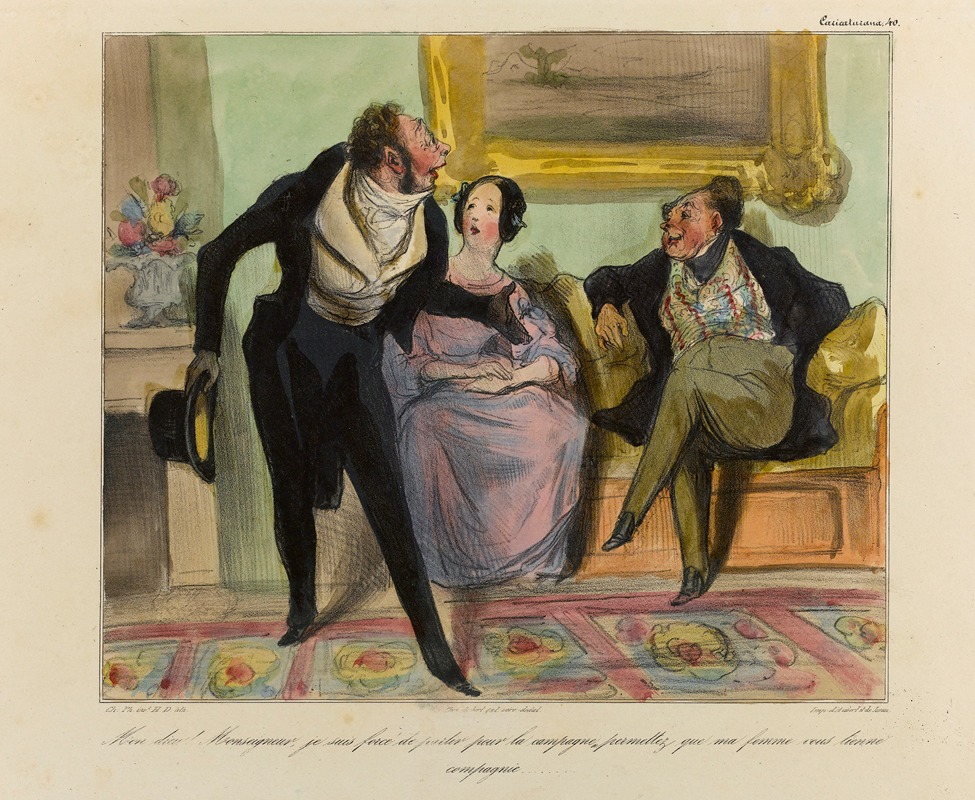
Mon dieu Monseigneur, je suis forcé de partir pour la campagne, permettez que ma femme vous tienne compagnie…
A hand-painted replica of Honoré Daumier’s masterpiece Mon dieu Monseigneur, je suis forcé de partir pour la campagne, permettez que ma femme vous tienne compagnie…, meticulously crafted by professional artists to capture the true essence of the original. Each piece is created with museum-quality canvas and rare mineral pigments, carefully painted by experienced artists with delicate brushstrokes and rich, layered colors to perfectly recreate the texture of the original artwork. Unlike machine-printed reproductions, this hand-painted version brings the painting to life, infused with the artist’s emotions and skill in every stroke. Whether for personal collection or home decoration, it instantly elevates the artistic atmosphere of any space.
Honoré Daumier was a prominent French printmaker, caricaturist, painter, and sculptor, known for his vivid social and political commentary during the 19th century. His works often critiqued the social and political climate of his time, using satire and humor to convey his messages. One of his notable works is the painting titled "Mon dieu Monseigneur, je suis forcé de partir pour la campagne, permettez que ma femme vous tienne compagnie…" which translates to "My God, Monseigneur, I am forced to leave for the countryside, allow my wife to keep you company…"
This painting is part of Daumier's extensive body of work that often depicted the bourgeoisie and the aristocracy in a satirical light. Daumier's art was heavily influenced by the political and social upheavals of his time, including the July Revolution of 1830 and the rise of the bourgeois class in France. His works frequently appeared in popular publications such as "Le Charivari" and "La Caricature," where he used his art to critique the government and society.
"Mon dieu Monseigneur, je suis forcé de partir pour la campagne, permettez que ma femme vous tienne compagnie…" exemplifies Daumier's style of using humor and irony to address societal issues. The painting likely portrays a scene involving the upper class, with a husband addressing a higher-ranking individual, possibly a cleric or nobleman, with a request that carries an underlying tone of sarcasm or critique. This reflects Daumier's common theme of highlighting the absurdities and moral contradictions within the upper echelons of society.
Daumier's technique in this painting, as in many of his works, is characterized by expressive brushwork and a keen attention to the nuances of human expression and gesture. His ability to capture the essence of his subjects with minimal detail is a testament to his skill as an artist and observer of human nature. The figures in his paintings often appear exaggerated, a stylistic choice that enhances the satirical impact of his work.
Throughout his career, Daumier faced censorship and legal challenges due to the provocative nature of his art. Despite this, he remained a prolific artist, producing thousands of drawings, lithographs, and paintings. His work continues to be celebrated for its incisive commentary and artistic innovation.
Daumier's legacy is that of a pioneering figure in the world of caricature and social commentary. His ability to blend art with political and social critique has left a lasting impact on both the art world and the broader cultural landscape. "Mon dieu Monseigneur, je suis forcé de partir pour la campagne, permettez que ma femme vous tienne compagnie…" stands as a testament to his unique voice and vision, capturing the complexities and contradictions of 19th-century French society.





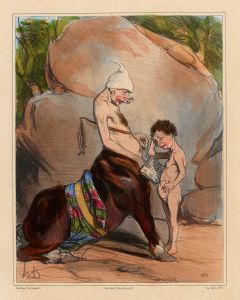
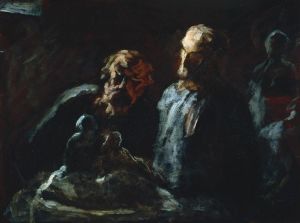
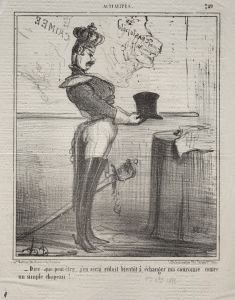
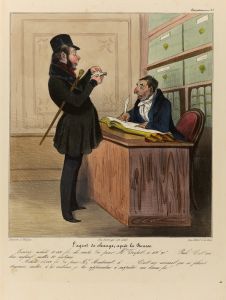
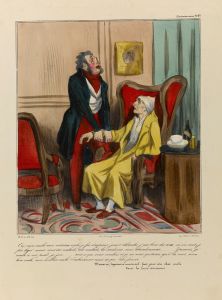
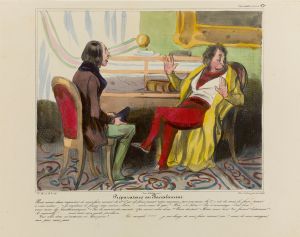
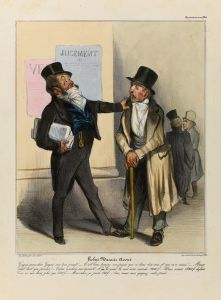
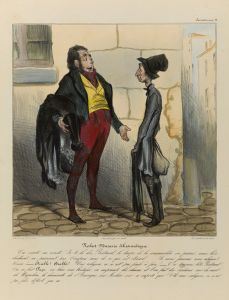
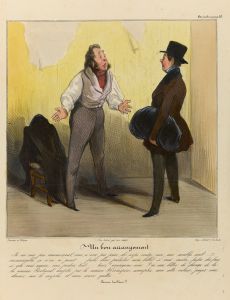
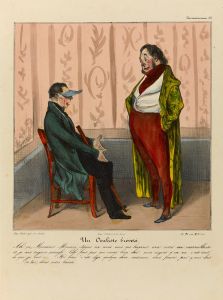
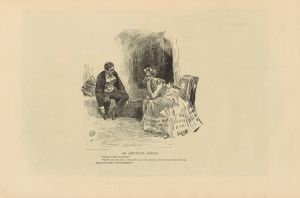
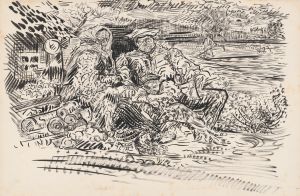
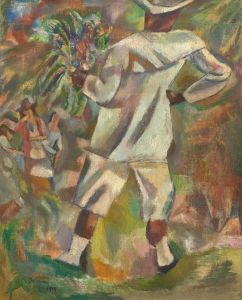
![She Who Is Ill Wed Never Misses a Chance to Say So [Disorderly Folly]](/imgs/264653/s/francisco-de-goya-she-who-is-ill-wed-never-misses-a-chance-to-say-so-disorderly-folly-4545d327.jpg)